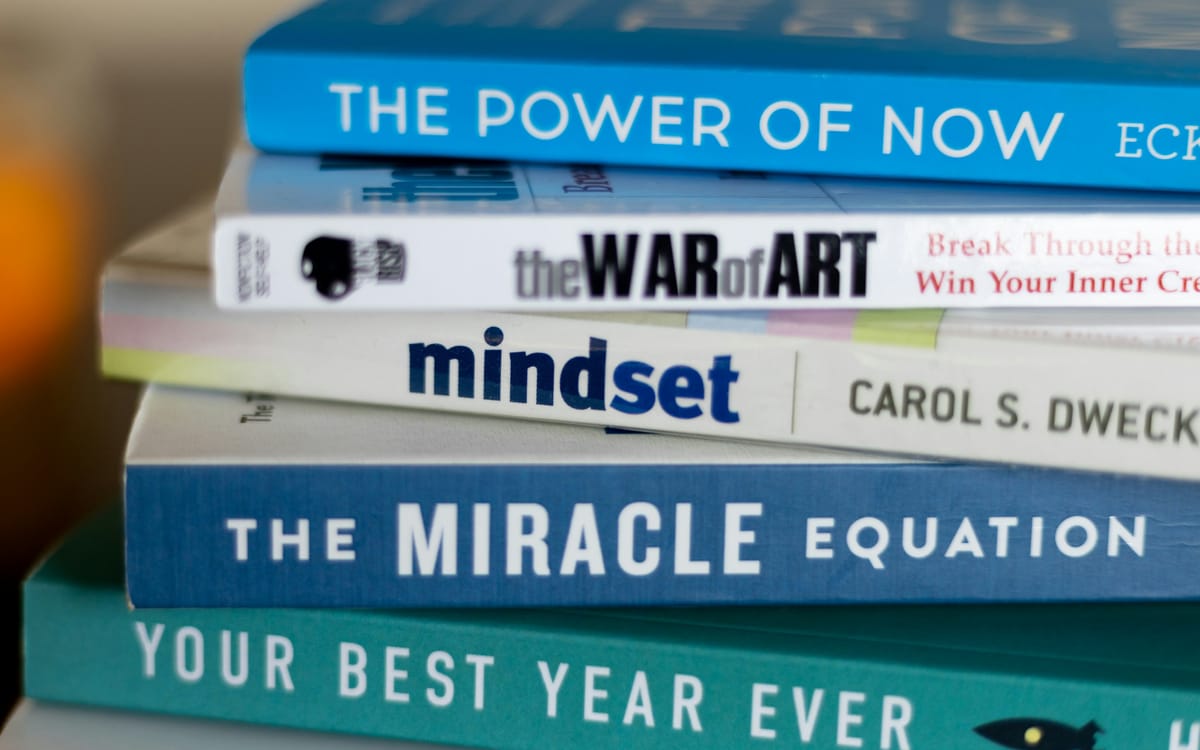Maybe don't read 100 books in 2024
Don't set a reading goal. It isn't worth it.

Hear me out
I was tempted to set a reading goal this year. I had the idea of reading one book a week, a goal that seemed pretty reasonable. And after all, there seems to be so many videos on Youtube about how to read more and why reading is so good for you. I’m of course not debating that reading isn’t a good thing, I read a lot myself, but maybe we shouldn’t stress through the books we read in order to reach some arbitrary goal we’ve set for ourselves. Here are a couple of reasons as to why we might rethink setting goals like this.
Time to think
In the words of Naval Ravikant,
Reading a book isn't a race—the better the book, the more slowly it should be absorbed.
More on Naval’s own strategy for reading later, but this is essentially what I’m getting at. There is no competition. Well, there might be, but there isn’t a competition in which you get anything for winning.
If you manage to read over 100 books in a year you have indeed done an incredible job on getting through all those books, but will you have learned and absorbed the lessons as well as someone who read half that amount? A tenth?
If someone where to only read one book religiously throughout the whole year, reading it slowly and re-reading it again and again, will they get more value out of it than someone who skims through it to get to 100? Probably.
You get more out of reading one great book five times, than reading five mediocre books one time.
— Alex Hormozi (@AlexHormozi) March 2, 2022
I’m not saying that you should only read one book throughout the year or that you shouldn’t skim through parts of the books you read (this might be very beneficial, depending on the book, more on this later). I’m merely stating that if you spend a little more time on a book and don’t rush to the end, there’s a lot more to gain from it and there’s time for the lessons in the book to really land. You also have more time to think about the book and its concepts outside of reading it.
My experience
I’m currently reading The Pathless Path by Paul Millerd which explores ideas surrounding work and how we should go about finding what we want to work on. This is a topic that is extremely relevant to me and I thoroughly enjoy reading the book every time I sit down with it. What I’ve also realised is that I need to stop a lot more and think about what I’ve just read than I usually do. I have to think about how something applies to me and my own life more than usual. This is, of course, something I usually do but I find myself doing it way more with this book than with others I have read recently.
And I think that’s okay. However, if I had set myself the reading goal I think I would have felt that I needed to read faster and wouldn’t have stopped to ponder as many passages as I am now, which would probably be a shame.
Reading the book more slowly, throughout more days, has also meant that I’m thinking about its themes more times. You’ve probably experienced how something you’ve read or watched is brought up by the brain later or during daily activities (often when I’m brushing my teeth). When not going through each book as fast I can think about it that much more outside of reading and get a way better grasp on its ideas and internalise them better.
I believe that’s valuable if there’s something that really resonates with you in a book. If something doesn’t, I believe there’s more reason to skim those parts that aren’t of interest to you at that moment. You can always read the book again, at a different time, and find that the very same things you skimmed are now very relevant to you. You can’t read the same book twice.
Naval Ravikant and learning from the books you read
This is, at least from what I’ve gathered, how Naval Ravikant reads his books. If you don’t know him, Naval is an entrepreneur, investor and a philosophical thinker whose insights on life, happiness and success has made him very respected in both the tech industry and the realm of personal development.
And I just really resonate with a lot of what he says. His episode on Joe Rogan is one of my top podcast episodes I’ve ever listened to.
Anyway, he reads multiple books at once, usually between 10-20 books. And he skims and speed reads. He reads what he is interested in a that time. If he gets bored of one book he can quickly move to another. I don’t necessarily think this needs to oppose the thesis of reading the good books more slowly, though.
I also have, through being inspired by Naval, been reading multiple books at a time and I think that is a good thing to make sure that I’m reading something I’m interested in at all times. By reading multiple books at once you also get to come back and revisit ideas from different books, as you’re essentially reading a lot of books more slowly, so you, again, can learn and absorb the ideas better.
Through the start of the new year, however, I’ve only been reading one book at a time. This isn’t because I’ve changed how I read books but because the concepts and ideas were really relevant to me and I just couldn’t put the book down for another.
If you find a book that really resonates with you at a certain time I think there’s value in taking time to absorb it and by using the strategy of reading multiple books at once you can make it more likely that you’re always reading something that is somewhat interesting to you.
It’s not a race and if you find a book that does it for you at one time then I think it’s okay to stay with that book for as long as it’s still interesting to you and makes you think. A reading goal would just make this harder to do.
If I had kept the goal of reading a book a week I think I would have wanted to stay with reading one book at a time in order to finish that book before my arbitrary deadline. This could have made me less interested in what I read and I wouldn’t have learned as well as I could have. I also don’t think I would have allowed myself to skim because then it wouldn’t actually feel like I’d met my goal.
By not having a reading goal, you can read things in a way that maximises their benefit to you. You can skim through parts of non-interest and stay longer on the parts that you resonate with.
Of course, a reading goal could be beneficial if it actually makes you sit down and read more. If a goal makes reading a higher priority for you then by all means set one. But if so, I think it’s probably better to set a goal based on reading time than one based on amount of books. If you set a goal for time it still counts, and it should, if you stop and think about what you’re reading.
Reading books just because of interest in the topic is a better driver though. And if you have a lot of books to choose from at all times that is made possible. If you stay with a certain book for longer you can also emphasise acting on what you learn as you learn it as well as avoid things like information overload where your brain doesn’t get to have the downtime to think on all the new information.
So, in conclusion, maybe it’s good to read books more slowly and to not set a goal for yourself. This can help you get more out of the books because there’s less stress to get through them and more time to think about them. It might be a good idea to read a lot of books at once, especially if you find that your interest with one particular book is fleeting. It’s always good to be reading and learning things you’re interested in. But if you think a reading goal will make you start to read more and in a way that is beneficial to you then those are certainly reasons to set one.
Hope this helped in some way! Reading more slowly and not worrying about the numbers has certainly helped me, although I still think it’s good to track the books you read to get a sense of progress.
//
